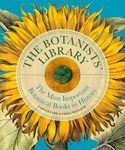About this book
Modern scientific research has changed so much since Isaac Newton's day: it is more professional, collaborative and international, with more complicated equipment and a more diverse community of researchers. Yet the use of scientific journals to report, share and store results is a thread that runs through the history of science from Newton's day to ours. Scientific journals are now central to academic research and careers. Their editorial and peer-review processes act as a check on new claims and findings, and researchers build their careers on the list of journal articles they have published. The journal that reported Newton's optical experiments still exists. First published in 1665, and now fully digital, the Philosophical Transactions has carried papers by Charles Darwin, Dorothy Hodgkin and Stephen Hawking. It is now one of eleven journals published by the Royal Society of London.
Unrivalled insights from the Royal Society's comprehensive archives have enabled the authors to investigate more than 350 years of scientific journal publishing. The editorial management, business practices and financial difficulties of the Philosophical Transactions and its sibling Proceedings reveal the meaning and purpose of journals in a changing scientific community. At a time when we are surrounded by calls to reform the academic publishing system, it has never been more urgent that we understand its history.
Contents
List of figures
List of tables
List of abbreviations
Contributor roles
Acknowledgements
Introduction: Origins Myths
Part I Invention, 1665-1750
1. The first Philosophical Transactions, 1665-1677
2. Repeated Reinventions, 1677-1696
3. Stabilising the Transactions, 1696-1752
4. The Transactions and the wider world, c.1700-1750
Part II Maturity and Institutionalisation, 1750-1820
5. For the Use and Benefit of the Society, 1750-1770
6. Sociability and Gatekeeping, 1770-1800
7. Circulating Knowledge, c.1780-1820
Part III The Professionalization of Science, 1820-1890
8. Reforms, Referees and the Proceedings, 1820-1850
9. Editing the Journals, 1850s-1870s
10. Scientific Publishing as Patronage, c.1860-1890
Part IV The Growth of Science, 1890-1950
11. The Rise of the Proceedings, 1890-1920s
12. Keeping the Publications Afloat, 1895-1930
13. Why do we Publish? 1932-1950
Part V The Business of Publishing, 1950-2015
14. Selling the Journals in the 1950s and 1960s
15. Survival in a Shrinking, Competitive Market, c.1970-1990
16. Money and Mission in the Digital Age, 1990-2015
Reflections: Learning from 350 years
Bibliography
Index
Customer Reviews
Biography
Aileen Fyfe is a Professor of Modern History at the University of St Andrews, UK. Noah Moxham is a specialist in the histories of early modern science and communication. Julie McDougall-Waters was a postdoctoral research fellow in History at the University of St Andrews from 2013-17, working on nineteenth- and early twentieth-century book trade and intellectual history. Camilla Mørk Røstvik is a Lecturer in Modern & Contemporary Art History at the University of Aberdeen, UK.


































